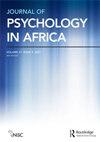How college students’ social media information overload affects sleep quality: The mediating effect of social fatigue and irrational procrastination
IF 0.8
4区 心理学
Q3 PSYCHOLOGY, MULTIDISCIPLINARY
引用次数: 0
Abstract
AbstractInformation overload is a pervasive phenomenon in the information age and has a negative impact on personal psychological experiences and behavioural performance. The relationship between WeChat information overload and sleep quality was examined, as well as the mediating effects of social fatigue and irrational procrastination. A total of 1 899 Chinese college students (females = 45.8%; mean age = 20.26 years, SD = 1.70) were selected for study. They completed the Information Overload Scale, Social Fatigue Scale, Irrational Procrastination Scale, and Pittsburgh Sleep Quality Index. Path analysis results show a significantly positive correlation between information overload and sleep quality and the mediating role of irrational procrastination in this relationship. Social fatigue and irrational procrastination play a chain-mediating role in the link between information overload and sleep quality. This suggests that information overload has an impact on sleep quality through social fatigue and irrational procrastination. Student mental health counselling services should consider information overload and sleep deprivation indicators for support interventions.Keywords: information overloadsleep qualitysocial fatigueirrational procrastinationWeChatcollege students AcknowledgementsFunding was provided by the National Educational Science Planning Project’s “Study on the Connotations, Influencing Factors and Promotion Paths of Academic Innovation Ability of Chinese Doctoral Students in the New Era” (Grant No. BIA220096).Declaration of competing interestNone. Table 5. Indirect effect of Bootstrap (95% CI)Display TableData availabilityThe data support the findings of this study are available from the corresponding author, upon reasonable request.大学生社交媒体信息超载对睡眠质量的影响:社交疲劳和非理性拖延的中介作用
摘要信息超载是信息时代普遍存在的现象,对个人的心理体验和行为表现产生了负面影响。研究微信信息过载与睡眠质量的关系,以及社交疲劳和非理性拖延的中介作用。共1 899名中国大学生(女生占45.8%;平均年龄20.26岁,SD = 1.70)。他们完成了信息超载量表、社交疲劳量表、非理性拖延量表和匹兹堡睡眠质量指数。通径分析结果显示,信息过载与睡眠质量显著正相关,非理性拖延在其中起中介作用。社交疲劳和非理性拖延在信息超载与睡眠质量的关系中起连锁中介作用。这表明信息过载通过社交疲劳和非理性拖延影响睡眠质量。学生心理健康咨询服务应考虑信息超载和睡眠剥夺指标,以支持干预措施。关键词:信息超载、睡眠质量、社交疲劳、非理性拖延、微信大学生BIA220096)。竞争利益声明表5所示。Bootstrap的间接影响(95% CI)显示表数据可得性支持本研究结果的数据可从通讯作者合理要求下获得。
本文章由计算机程序翻译,如有差异,请以英文原文为准。
求助全文
约1分钟内获得全文
求助全文
来源期刊

Journal of Psychology in Africa
PSYCHOLOGY, MULTIDISCIPLINARY-
CiteScore
1.70
自引率
16.70%
发文量
62
期刊介绍:
Findings from psychological research in Africa and related regions needs a forum for better dissemination and utilisation in the context of development. Special emphasis is placed on the consideration of African, African-American, Asian, Caribbean, and Hispanic-Latino realities and problems. Contributions should attempt a synthesis of emic and etic methodologies and applications. The Journal of Psychology in Africa includes original articles, review articles, book reviews, commentaries, special issues, case analyses, reports and announcements.
 求助内容:
求助内容: 应助结果提醒方式:
应助结果提醒方式:


